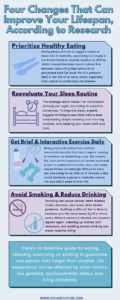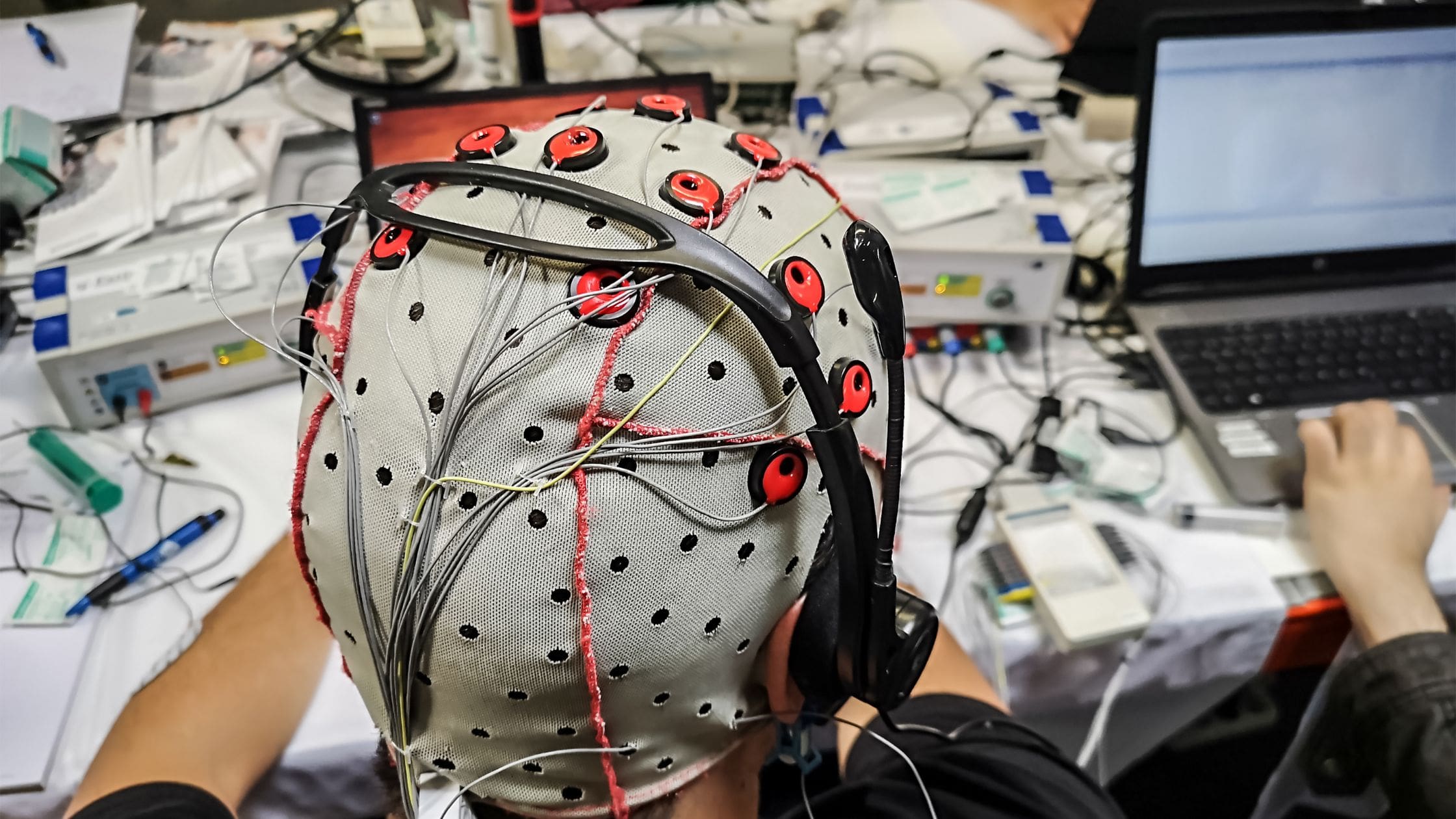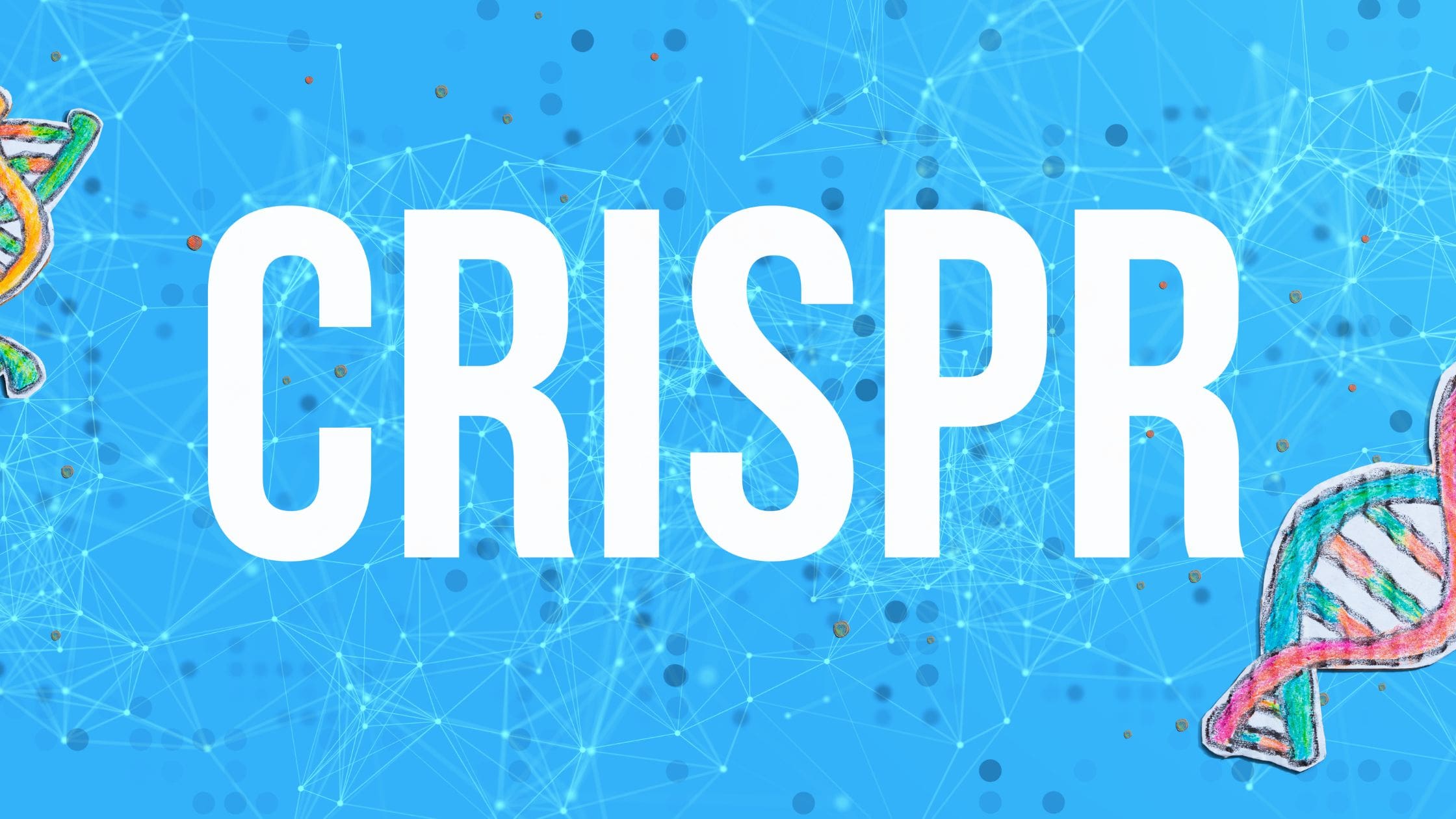Fabled fountains of youth. $1,800-per-ounce anti-aging cream. Doomed quests for immortality. Throughout history, the desire to prolong life, cure ailments, and stay youthful has led humans to some extreme lengths.
Nowadays, diet companies and wellness influencers continue the trend, promising health and longevity in exchange for strict protocols or expensive products. However, few can guarantee lasting outcomes.
At the end of the day, straightforward changes to your diet, sleep schedule, exercise routine, and drug and alcohol habits are significantly more likely to increase your chances of reaching a ripe old age. These recommendations come from decades of scientific studies, and rather than a miracle cure or restrictive meal plan, their results point to four broad methods for leading a longer and healthier life.
Prioritize Healthy Eating
The way we eat is under constant scrutiny in advertisements, talk shows, and social media posts. But fads like counting calories and fasting intermittently can distract from proven, simple habits such as getting enough greens and avoiding highly-processed snacks.
Eating plenty of fruits and veggies means a lower risk of mortality, according to a study in the British Medical Journal. Another in 2019 by JAMA Internal Medicine found a direct link between consuming high amounts of processed food (at least 15 percent of a person’s diet) and the risk of an early death, especially from cancer and cardiovascular disease.
So, what should you eat?
Many of the foods associated with a Mediterranean diet appear throughout the literature, including seafood, whole grains, beans, nuts, fats, and oils. Many nutritionists also recommend increasing the amount of plant-based proteins and fibers in your diet to stimulate digestion, energy levels, and heart health.
But it’s okay to enjoy steak, wine, and dessert as well. Cutting out your favorite foods entirely because they are “bad for you” can have negative effects. Instead, moderating their presence in your daily diet and making substitutions when possible could be enough to improve your overall wellbeing.
Reevaluate Your Sleep Routine
The average adult needs 7 or more hours of sleep per night, according to scientific consensus. Too little sleep can lead to anxiety, depression, weight fluctuations, hypertension, stroke, and other serious health issues. On the other hand, too much sleep could be an indication of an underlying medical condition and have effects similar to sleep deprivation.
Your sleep pattern also matters. One study suggests a consistent schedule, such as going to bed and waking up around the same time each day, is correlated with better health outcomes.
To improve sleep, experts suggest limiting screen time before bed, establishing simple evening and morning routines, and keeping your room dark and cool.
Get Brief and Interactive Exercise Daily
Being physically active has multiple, immediate benefits that don’t require running a marathon or deadlifting a car. But modern life, such as the expansion of remote work and a lack of pedestrian-friendly cities, has made casual fitness increasingly difficult to carry out. The CDC reports nearly 20 percent of Americans lead sedentary lives, which increases health risks associated with common diseases and disabilities.
Dr. Luigi Ferruci, a geriatrician for the National Institutes of Health, cites exercise as crucial for living healthier for longer. “Exercise is especially important for lengthening active life expectancy, which is life without disease and without physical and mental/thinking disability,” Ferruci noted in a NIH newsletter.
Fortunately, exercising for as little as 15 minutes a day could decrease a person’s mortality rate by 14 percent and add 3 years to their life, according to studies in The Lancet and The Journal of the American College of Cardiology. There may also be perks to participating in group sports like tennis and soccer because of the opportunity for social interaction, according to data from the Copenhagen City Heart Study. In general, people with strong social ties, including to children and grandchildren, tend to live longer.
Avoid Smoking and Reduce Drinking (150)
Smoking can cause cancer, heart disease, stroke, diabetes, and many other health problems. Quitting is difficult, but is likely to increase your life expectancy by 10 or more years.
Several large-scale prospective cohort studies (which observe many participants for long periods of time) have found similarities when assessing the impact of diet, lifestyle, body-mass index, and smoking on a person’s lifespan. Johns Hopkins’ researchers tracked more than 6,000 participants for ten years and a team at Harvard analyzed data from three decades. Both found smoking to be a major cause of premature deaths.
When it comes to alcohol, the research agrees again. Sobering up entirely isn’t necessary, but avoiding excess drinking can mean healthier living. Johns Hopkins and CDC researchers both found moderate alcohol consumption to decrease a person’s risk of death. That typically translates to one drink per day for women and two for men.
What the Future Holds for Human Longevity
There’s no definitive guide for eating, sleeping, exercising, or existing to guarantee one person lives longer than another. Life expectancy can be affected by other factors, like genetics, socioeconomic status, and living standards. Current research can only offer general recommendations.
Beyond daily habits and disease treatments, some researchers, like Peter Fedichev, the founder of a human longevity startup, predict the average lifespan depends mostly on resilience — the ability to bounce back after trauma or stress. In May 2021, Fedichev co-authored a study in Nature Communications that suggests humans can live anywhere from 120 to 150 years so long as stressors related to aging are managed. Additionally, if a treatment is created to target the genes responsible for resilience, Fedichev told Inverse, humans may even surpass 150.
Until then, the majority of scholarship indicates that paying attention to the type and amount of food, rest, and activity one gets is the most effective way to live a long and fulfilling life.





